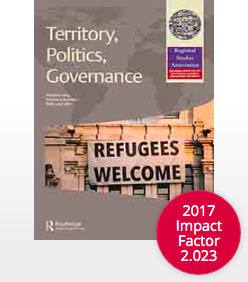Boosters, brokers, bureaucrats and businessmen: assembling Chinese capital with Brazilian agribusiness
Dr. Oliveira’s article “Boosters, brokers, bureaucrats and businessmen: assembling Chinese capital with Brazilian agribusiness” has just been published a special issue on “Grounding China’s Global Integration” in the journal Territory, Politics, Governance.
ABSTRACT: My purpose in this paper is to deepen the literature on Chinese foreign investments (particularly in Brazilian agribusiness), and the formation of a transnational capitalist class, by utilizing practices of global ethnography and the conceptual apparatus of ‘assemblages’ emerging in human geography. I trace the genealogy of the Chinese-owned Brazilian company BBCA Brazil and its agroindustrial project in Mato Grosso do Sul state, since it is illustrative of the conditions of possibility for Chinese direct investments in agribusiness in Brazil and Brazil–China agroindustrial partnerships more generally. I argue the central characters of this story aptly illustrate the transnational class of boosters, brokers, bureaucrats and businessmen who rise by assembling Chinese capital with Brazilian (agri)business expertise, labour and land. It is the particular work of assemblage and set of skills of these characters, especially those operating at the ‘middle levels’ of state and corporate governance, that both enables the successful implementation of transnational investments, and also explains why such projects propel them while marginalizing others, increasing social inequality, and aggravating environmental degradation.
Territory, Politics, Governance is an interdisciplinary journal from the Regional Studies Association. It is “committed to the development of theory and research in territorial politics and the governance of space,” emphasizing publications on globalization, territorial identities and politics, and multi-level governance, among other topics.
For the full-length article, see: https://www.tandfonline.com/doi/full/10.1080/21622671.2017.1374205
